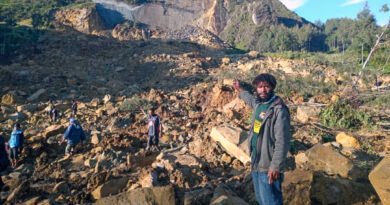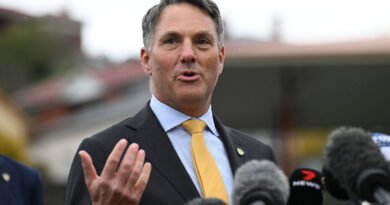Rebels Take Control of Syria while Assad Finds Sanctuary in Moscow
Despite the release of hundreds of political prisoners, many more remain trapped underground in the ‘red cells’ at Saydnaya prison.
Rebels who took control of Damascus over the weekend are now overseeing the country as a delicate peace holds between various armed factions.
It has been confirmed by Russia that former president Bashar al-Assad has been granted asylum in Moscow, marking the end of more than 50 years of his family’s rule and concluding the 13-year civil war that began during the Arab Spring of 2011.
Russia’s ambassador in Vienna, Mikhail Ulyanov, announced on Sunday via his Telegram channel that Assad, whose father Hafez ruled Syria from the early 1970s, had been given sanctuary in Moscow.
Assad, 59, appears to have fled Damascus on Saturday as rebels advanced on the city from multiple directions.
Hayat al-Tahrir al-Sham (HTS), a Sunni Islamist group originally linked to al-Qaeda, moved from the north after capturing cities like Aleppo, Hama, and Homs in swift succession.
Another group known as the Southern Operations Room made its way into Damascus after taking Daraa in southern Syria, where the uprising against the Assad regime began in April 2011.
The fall of the Assads has been celebrated by Western governments, but U.S. President Joe Biden warned of a period of risk and uncertainty for Syria.
HTS leader Abu Mohammed al-Golani has been addressing concerns both inside and outside his country about his Islamist movement.
HTS Hail ‘Great Victory’
Speaking to a large crowd in a central square in Damascus on Sunday, Al-Golani proclaimed, “A new history is being written in the entire region after this great victory.”
He expressed his vision of Syria being a beacon for the Islamic nation.
Al-Golani’s speech took place outside the Umayyad Mosque, containing a shrine to Yahya ibn Zakariyya (John The Baptist in Christianity).
There were concerns of potential retaliation against the Alawite minority elite who controlled the Assyrian regime under the secular Ba’ath Party, but no reports of violence have emerged in Damascus or the Alawite region near Tartus.
Russia had military bases in Tartus and Hmeimim in Latakia province, with Kremlin spokesman Dmitry Peskov stating on Monday that the future of these bases remains uncertain.
Peskov emphasized the ongoing efforts to establish communication with the new Syrian authorities for security matters.
Moving forward, many inmates were released from prisons in Damascus over the weekend, reuniting with their families amid the fall of the Assad regime.
Video footage showed the surprise and relief of the prisoners upon their release, with many unaware of the regime’s downfall until that moment.
Despite the freeing of numerous inmates, thousands are reportedly still trapped at the infamous Saydnaya military prison north of Damascus.
Thousands Trapped In Underground Prison
The White Helmets initiated emergency efforts at Saydnaya to access the hidden underground cells, possibly saving detainees from suffocation.
Rebels have offered amnesty to former guards willing to help unlock the cells at Saydnaya to prevent potential suffocation of those underground.
Human rights organizations estimate that up to 13,000 Syrians may have been executed at Saydnaya between 2011 and 2016.
Turkey’s foreign minister, Hakan Fidan, expressed readiness to aid in Syria’s reconstruction in cooperation with regional actors.
Fidan emphasized the vision of a peaceful and inclusive Syria, promoting the safe return of refugees and the country’s reconstruction.

Russian President Vladimir Putin (R) stands beside Syria’s President Bashar al-Assad—who was ousted in Dec. 2024—at Hmeymim air base in Latakia, Syria, on Dec. 11, 2017.
Mikhail Klimentyev/Sputnik via Reuters
The Syrian National Army (SNA), supported by Turkey, has reportedly clashed with the Kurdish-led Syrian Democratic Forces (SDF) in Manbij, northern Syria.
Social media accounts affiliated with both SNA and SDF claim control of the city.
Additionally, Israel’s foreign minister, Gideon Saar, affirmed that Israeli airstrikes targeted military bases suspected of storing chemical weapons or long-range rockets.
Saar emphasized Israel’s commitment to ensuring its security and preventing weapons from falling into extremist hands.
Associated Press and Reuters contributed to this report.




